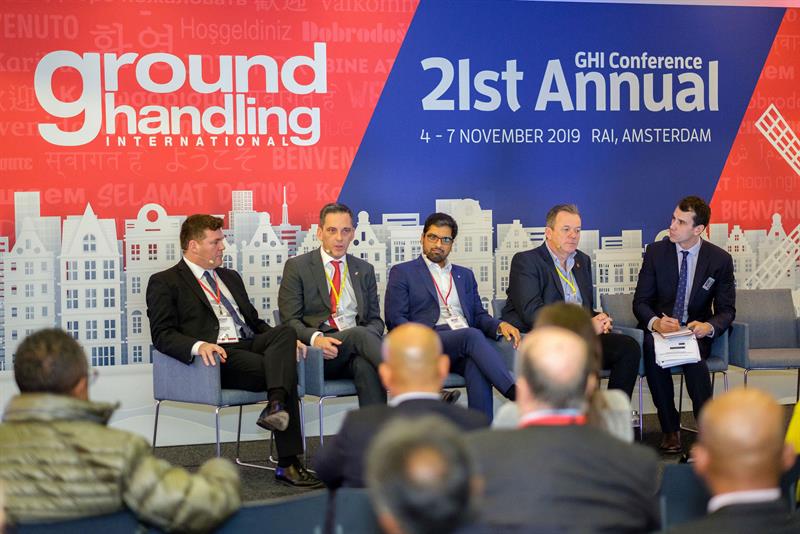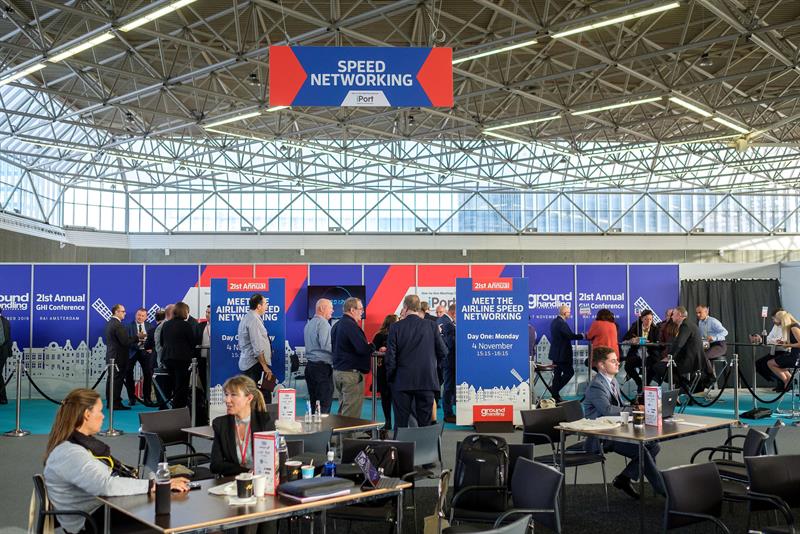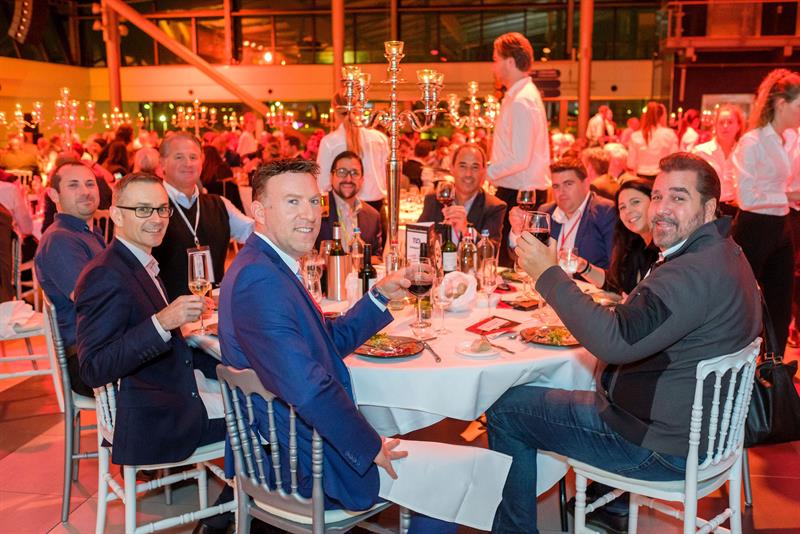
Seeking out synergies
As the first panel of the conference assessed both the passenger and cargo side of operations, Menzies’ Executive VP – Cargo, Robert Fordree, declared that the e-AWB was not the future – “it was the future a long time ago.” Steven Polmans, Director Cargo & Logistics for Brussels Airport Company, shared the view that the focus shouldn’t be on paper, highlighting that hitting implementation targets without changing any operational processes is not benefitting the industry. “Talking about e-AWB and innovation is ridiculous – it’s old solutions for future problems,” he said, stressing that the energy should be put into new solutions.
Benoit Dumont, CEO of Unilode Aviation Solutions, flagged up an absurd reality: “You can track a US$10 pizza through every step of its journey but you don’t know the location of your shipment for four days,” he said. The limitation is not skills or technological capability but mindset, he noted, to which Fordree added that fresh blood coming into the industry would help to drive change.
When asked what strengths cargo could borrow from the passenger side of the equation, Fordree singled out customer interaction. Tania Boyes, Director of Cargo Operations, Virgin Atlantic Cargo, agreed, noting that the impact of upsetting a cargo customer could be far worse that than a disgruntled passenger. In an ideal world, she added, the airline would like to be able to contract jointly for passenger and cargo – Fordree concurred, saying that this was where he saw the business going.
Big Debate on price
The results of a GHI survey revealed some shocking statistics relating to pricing for the average turnaround and top KPIs in SLA negotiation. Handlers reported an average price per turn of €955, equating to €5.30 per passenger, while airlines reported a higher average cost of €1,047; however, the handlers in the room were unanimous that these estimations were considerably higher than the reality. Three quarters of respondents reported having to decline a deal because an airline wouldn’t meet their minimum per turn fee – and 90% of airlines confirmed their SLA included a penalty clause. Both handlers and airlines gave safety and OTP as the most important, followed by passenger satisfaction, leading the room to ask: that if they were not all in this business for the passenger then what were they in the game for?
Labour is the main driver of cost, at 70% of total costs, while GSE totalled around 10%, suggested Richard Prince, COO of Aviapartner, noting some parts of Europe were pushing heavily on full time contracts. While demands on standards and timings are no bad thing, the feeling was unanimous that procurement methods of old need to change and a more value-driven conversation needs to take place, centred around return on investment. Koen Slembrouck, from Norwegian, stressed that more transparency was needed between the airline and the handler, but that they all needed to stick to their promise to communicate after returning home, if any real change was to be made.

Aviation trailblazers
A session devoted to easyJet and DHL’s trailblazing a new ground handling model at London’s Gatwick airport heard that the partnership has been entirely successful thus far, generating more staff engagement and a step change in productivity.
“We’re a new pair of eyes in the industry and have applied some learning from our experience in warehouses,” said David Jenkins, Operations Director for DHL Supply Chain. A subsequent presentation demonstrated how Groundforce Portugal had implemented process improvements, by establishing contact with and learning from their other operations in Funchal and Faro, despite the varying scale of operations.
Ross Priday of Baines Simmons reminded delegates of the benefits of a Just Culture in the workplace, from increased reporting to reduced waste, risk and cost. A lack of trust and normalised deviance discourage employees from reporting, he noted, suggesting the Flowchart Analysis of Investigation Results system as a way to drive a corporate safety culture.
This was dovetailed with a lesson in conversational intelligence from performance coach Desiree Perez, who warned delegates against the five common mistakes that make nine out of ten conversations ineffective. “Everyone’s reality is different, based on biases and expectations,” she explained, “and trust changes the reality.” Transparency, relationship, understanding, shared success and truth telling – these were the ways to achieve a win-win conversation, which is what we should be aiming for, she advised.
Swissport’s Nick Ward, winner of last year’s Rising Star Award, brought the delegation up to speed on the handler’s successful efforts towards increasing staff retention, including a mentorship programme and Talent Development programme, designed in-house in Brisbane. “We’ve already placed over 60% into leadership roles,” Ward enthused, noting a 32% reduction in leavers, with 90% of new hires saying their expectations were exceeded.

All about perspectives
On Day Two, delegates heard the perspective from the flight deck, as easyJet Captain Douglas Moule and American Airlines Captain Bill Sherrod flagged up communication between the ground and the aircraft as key to success in a quick turn, noting examples where breakdowns in communication had led to delays. Both highlighted the need to improve staff retention, the promotion of continuous training, with safety declared the priority at all times. Moule flagged up leadership as the cornerstone to any safety initiative, while Sherrod asserted the role of standardisation, with both citing plans to invest in real-time communication, from iPads and live apps to easyJet’s redeployment of wireless headsets at Gatwick.
When a panel of under 30 year-olds voiced their views of the industry and how to improve it, the need to deploy more technology, like smart watches to provide push notifications on the ramp, was raised again; however, it was agreed that diversity of potential applications was crucial – and tech for tech’s sake ill-advised. Nick Ward emphasised the need for the millennial workforce to feel “part of the tribe”, with failure to deliver on this leading to high attrition, which itself is a precursor to various issues. Consultant Maryam Noorzai called millennials a “hybrid” generation, learning from the passion of their elders, while Ward iterated the need to take this opportunity to evolve the industry, “not cement norms.” Change management will always be difficult, noted Kelly Miller of United Ground Express, while Ward’s lasting advice was never to underestimate the power of a good mentor – a sentiment to which the whole panel related.
Leadership was the focus of two further sessions on Day Two, as Dr Sarah Flaherty of Lux Consulting ruminated on the concept of excellence. “It is a habit, not an act. Repeated, normalised behaviour,” she asserted. She noted also the formula to create a habit: make it obvious, attractive, easy and satisfying.
From people to promise, a discussion on Latin America revealed that, despite devaluation in all currencies and fluctuating fuel prices, the region is one of great opportunity, seeing above-average passenger growth. “Every airport in the region is saturated,” asserted Gustavo Di Cio, Director, Abiax Air, adding that exciting times are afoot, with Argentina just recently liberalising to allow non state-owned ground handlers to operate.

Day three
Matt Frankel of DLL promoted the shift from a purchase to a pay-per-use scenario, as ground support equipment took centre stage. “Sharing, subscription, consumption – people are choosing to pay only for what they use rather than for the asset and all the additional costs and liabilities that go with it,” he stated. Not only is it applicable at airports of varying size, he said, hypothesising a pay-per-turn model that could help when outfitting new stations, it makes known true costs and affords predictability and flexibility to an operation. From baggage tractors to baggage itself, there followed a panel on the future of luggage tracking. SITA’s Nick Gates enthused that investment in this area is paying off, with the number of mishandled bags decreasing while passenger numbers have increased. Since IATA’s implementation of Resolution 753, 36% of airlines plan to be more than 50% compliant, he added. The panel was unanimous on the need for 100% visibility, with CAI ZHI’s Thomas Waintraub reporting that 56% of passengers want to receive notifications on their bag. The technology has to fit around the behaviour of people, he asserted, flagging up the role of proximity sensors. While this technology might cost millions overall, the cost per bag is a miniscule 2-3 cents.
Beyond basic tracking, new revenue opportunities for ground handlers include door-to-door services and self-connect (in use at London’s Gatwick), while Gates suggested that the industry ought to be using predictive analytics to pre-empt when cabin bag capacity would be reached to eliminate last minute loading. Better tracking would also help to address passengers’ reluctance to have their cabin bag checked, it was added.
Cargo corner
The GHI event, whilst focussed on ground handling issues, this year played host to a new concept: a mini conference that attracted a useful number of cargo-focused delegates and a spectrum of speakers. The entire gamut of cargo activity was discussed during the sessions, with everything from electronic air waybills and pharma considerations through new airport development to optimising the logistics operation and ULD progress. Response was positive, inclining the organisers towards expanding this feature for 2020. If your remit is cargo, then watch this space.
Next year’s annual event will fall over November 30 – December 3, and take place in Copenhagen, at the Bella Center.





